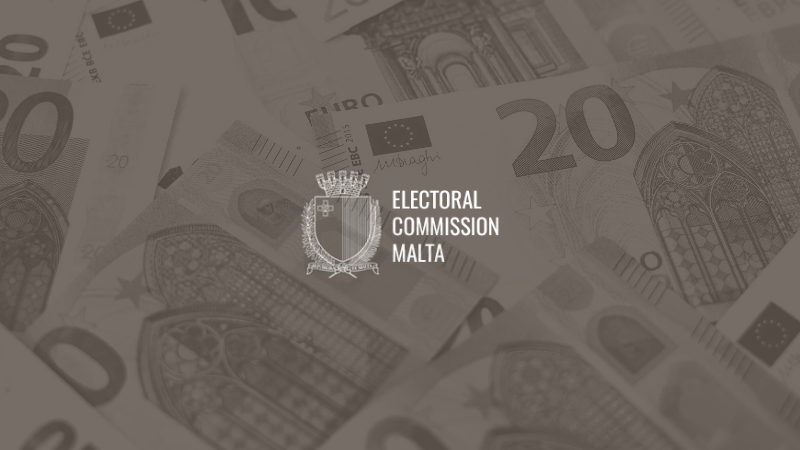The Electoral Commission has repeatedly failed to respond to questions from The Shift asking how electoral candidates’ 2022 general elections expenditure reports that lacked receipts were verified and has dodged queries about whether it will investigate specific cases revealed in press reports of the glaring discrepancies in some candidates’ declarations.
When asked whether there is an ongoing investigation into the fact that candidates from both the Labour Party and the Nationalist Party, who have now become MPs, failed to submit these receipts, the Electoral Commission said its only obligation is to “examine (and not audit)” the reports.
“Commissioners are obliged to examine (and not audit) the return of expenses and to determine whether an elected candidate ‘has prima facie given information which is false in the return of expenses as an amount exceeding the amount permissible by law’,” Electoral Commission head Joseph Camilleri told The Shift.
While candidates swore under oath in front of a magistrate that all their filings are correct, the fact remains that in the eventually of a candidate committing perjury, there is no comprehensive auditing of their declarations, especially if the paper trail documenting their expenses does not declare all of them.
Additionally, a convenient proviso in Note 3 of the Twelfth Schedule of the General Elections Act provides a loophole, by stating that “all sums paid out, but for which no receipt is attached, are to be set out in detail with dates of payments”.
At the time of writing, the Electoral Commission had not answered further queries about how they managed to verify pay-outs for which no receipt is attached, nor did it answer direct questions about what is being done to reconcile findings published by this portal in relation to candidates who didn’t declare expenditure on specific events.
The Electoral Commission reminded us that the declarations were made “under oath”, and seems to be satisfied with that. No answers were given to the specific question, sent repeatedly, on whether an investigation will be held into the discrepancies revealed in press reports, including events held and promoted on social media that are clearly missing from candidates’ campaign declarations.
Economy minister Silvio Schembri’s campaign expenditure report did not feature any references to a large rally held at MFCC in Ta’ Qali, along with at least seven other PL MPs who also held events that were partially or fully unaccounted for.
The Commission said that following its review of reports submitted for the 2022 general elections, it has “sought the relative clarifications and/or further details/documentation from candidates as and where required,” and that the review of those replies is still ongoing.
As for PN MPs, a review of the reports submitted showed that a third of the Opposition’s elected MPs have failed to attach receipts with their declarations, though these are necessary to verify whether they really spent what they declared under oath.
Even obtaining copies of the campaign expenditure reports themselves proved to be a dubiously archaic process. At €0.14c per page, irrespective of whether in soft or hard copy form, it cost €350 just to obtain a copy of the declarations filed by candidates in the 2022 general elections, despite the fact that this information should be public.
One of the facts that immediately stood out during The Shift’s initial analysis of the documents was the process by which MPs explained away discrepancies between the amounts declared and the amounts invoiced by referring to payments issued through ‘personal funds’, with the Electoral Commission simply taking their word for it.
The Electoral Commission is comprised of 10 individuals who were nominated by the major parties, who get to pick five each. This aspect of the electoral process has often elicited criticism, in particular from smaller parties seeking to make in-roads into parliament.
Just a few days after the 2022 general elections were concluded, the Green Party, ADPD, took the Electoral Commission to court over discrimination which the party argues occurs because of the way the vote proportionality system works to favour major parties.















If there are laws, but they are not implemented or penalties are imposed for non-compliance, then they are useless and worthless. This is Malta.
We have seen an election that was bought with 200 € per inhabitant.
We have seen an election in which even Robber Abela made shady deals.
We now see again a lot of very dirty ministers,
We see a Police Commissioner who does nothing but receive his monthly check.
We see absolutely incompetent prosecutors working for the accused and bending the law.
I myself see no difference from 2019.
REMINDER: Mafiosis can’t resign.
REMINDER: An election commission of ridiculousness hard to beat!
No matter how one looks at them, it always winds back to the same, original and pointed thought – mafia.
Every unaccounted for cent is simply a sign of how much they hold citizens and law in contempt.